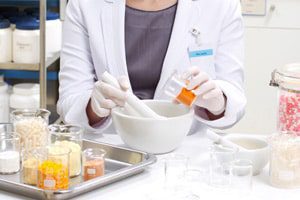
Medaus Pharmacy of Birmingham, Alabama, is voluntarily recalling compounded consumer products due to the inability to confirm the sterility of the products. Though Medaus received test results indicating that the product lots met all safety standards, the products are being recalled because the independent testing lab’s sterility testing practices as applied to these lots indicate […]
 Medaus Pharmacy of Birmingham, Alabama, is voluntarily recalling compounded consumer products due to the inability to confirm the sterility of the products.
Medaus Pharmacy of Birmingham, Alabama, is voluntarily recalling compounded consumer products due to the inability to confirm the sterility of the products.
Though Medaus received test results indicating that the product lots met all safety standards, the products are being recalled because the independent testing lab’s sterility testing practices as applied to these lots indicate that the product’s sterility cannot be confirmed. Medaus said it decided on a voluntary recall out of an “abundance of caution,” according to the firm’s press release.
The use of a non-sterile injectible product exposes patients to the risk of serious life-threatening infections. To date, Medaus said, it has not received any reports of adverse events related to the recalled products.
The recalled products were dispensed nationwide between March 12 and July 22, 2013. A list of the products and lot numbers can be found in the company’s recall announcement posted by the U.S. Food and Drug Administration (FDA): http://www.fda.gov/Safety/Recalls/ucm367353.htm. Medaus is notifying customers by telephone and email, and arranging for return of affected products. Any doctor, health care facility, or individual with a recalled product should stop using the product and call Medaus at 800-526-9183 for instructions for returning the product for a full refund.
Compounding pharmacies, which produce individually formulated medicines and products such as intravenous solutions, have been under intense scrutiny since last fall, when hundreds of people nationwide were infected in a fungal meningitis outbreak linked to contaminated steroid injections for back pain. The outbreak has been blamed for at least 50 deaths and more than 700 illnesses.
Compounding is vital for patients who cannot be treated with standard FDA-approved formulas, for example, people allergic to certain dyes or inactive ingredients, or those who need a medication in a form or strength not commonly available. Compounding is normally done on a small-scale basis but recent expansion in the scope of manufacturing and distribution by some compounders has prompted calls for compounders to be regulated by the FDA as other drug manufacturers are. Oversight of sterile practices is particularly important because of the grave risks posed by contaminated injectible products.


